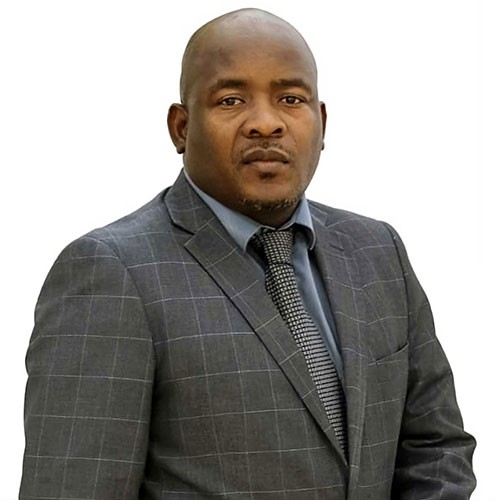
Improvements in education and reputation are essential if the accountancy profession in South Africa is to be able to get its hands on enough high-quality talent, experts are warning. And retention is proving just as thorny as recruitment, with organisations reporting it is getting harder to hold onto talented individuals in the face of more attractive opportunities outside the profession, or even the country.
It is a situation that cuts across all aspects of the accountancy profession, from business and practice through to the public sector. The battle for talent accordingly takes place first with other professions, and then within the accounting sector itself.
‘Gen Z just doesn’t find accountancy as interesting as digital start-ups’
Educational shortfall
According to Bonga Mokoena, the CEO of BDO South Africa, one of the fundamental problems is that school leavers do not have sufficiently good skills in basic mathematics. ‘The numbers of college leavers that matriculate with maths is astronomically low compared with the number that start,’ he says.
Given the demand from the economy and the accountancy profession for students with the right level of mathematical knowledge is so high, why is the supply from high school and universities so low?
‘The biggest challenge we are faced with is that the throughput from the accredited channels is getting lower and lower,’ he says. He says far more potential recruits are coming from private education, largely because they are more likely to have been exposed to commercial and economic influences through their parents. Those from a disadvantaged background are less likely to have life and commercial experiences that can draw them towards accountancy.
But it is not just academic capabilities that are putting a brake on the numbers joining the profession. Other influences at play include the perception and reputation of the profession. ‘Generation Z just doesn’t find accountancy interesting,’ Mokoena says. ‘They want to join a digital start-up instead.’ He adds that the inability to ensure optimal retention of Gen Z accounting and auditing employees, as a consequence of push factors in the profession and the many attractive emigration opportunities, just serves to aggravate the recruitment challenge the profession faces.
‘I don’t want to blame this on the younger generation, but something isn’t going right’
The basics
It is a similar story for South African businesses looking for accountancy talent for their finance teams. ‘There is a war for talent in South Africa,’ says Rachael Madziwanyika FCCA, CFO of Bühler South Africa, the food processing equipment manufacturer.
‘We are finding that the younger generation does not have as strong a work ethic compared with older generations,’ Madziwanyika says. ‘Back when we trained, we learnt the basics. We didn’t have computers, so we really understood what was happening behind the scenes. I’ve hired young chartered accountants and found they do not have the level of expertise that we had at the same stage.’
Madziwanyika does not know whether the apparent lack of skills is down to the intensity of accountancy training or to a more fundamental lack of numeracy skills. She is also concerned about falling levels of integrity, although this is based on her own experience of trying to recruit new talent. ‘I don’t want to blame this on the younger generation, but something isn’t going right,’ she says.
‘We need to build capacity in maths but also in ethics’
Like Mokoena, Madziwanyika is concerned about whether the South African education system is able to deliver to a sufficiently high standard. However, she does recognise that many students come from very disadvantaged backgrounds, which will have had an impact on their education.
Once a candidate has been recruited, there is then the ongoing battle of retention. ‘We offer competitive remuneration and talent development, highlighting the opportunities that we have within the organisation,’ Madziwanyika says. ‘This is an important part of our culture. We recognise that people now want more flexibility, and also mentorship.’
Fading attraction
The public sector is also struggling to bring on board the right level of quality. The Auditor-General of South Africa, the country’s national audit office, is the biggest public sector training office for finance professionals in South Africa, and ‘committed to providing opportunities for those wanting to pursue a career in accounting’. According to Bongi Ngoma, its national head of audit, the institution offers a competitive level of compensation, training and support, yet recruitment and retention issues remain.
‘There is disruption in the industry,’ she says, ‘which is driven by a number of factors, meaning that the profession is becoming unattractive.’ Maths literacy is a particular concern, as entrance requirements into the profession are high. But Ngoma says the post-pandemic opening up of the global market, together with a move to hybrid working, has meant more people are moving abroad. The increasing regulatory burden and associated risks also make the profession less attractive.
‘We need to invest in our talent, but also understand why the profession is less attractive,’ Ngoma says. ‘We need to build capacity in maths but also in ethics. We pay close attention to this, but it needs to be instilled early on to reduce mistakes that are costly to the profession’s reputation.’
‘We don’t tell enough good stories, and how finance can connect the dots’
Ngoma says there are still good opportunities for career development in the public sector. Internal promotion is available once training is completed, and AGSA supplies the wider public sector with a pool of skilled professionals, which can lead to positive outcomes. ‘We can see improvement in other government institutions in terms of ethics, culture and performance,’ she says.
Ngoma accepts that a number of trained finance professionals will move into the private sector, both domestically and internationally. ‘We see this in a positive light, but we need to replace these skills, which can take time.’
Spread the word
Jo-Ann Pöhl FCCA, associate director at global consulting company Kearney, concurs, highlighting the current pipeline concerns alongside the ongoing brain drain. ‘The skills shortage is apparent, with a continuous talent war extending beyond the sector and across borders with the rise of professional mobility,’ she says, adding that organisations in South Africa also need to be mindful of the commitment to transformation and retaining key talent across the diverse demographic.
‘We must actively participate in closing the gaps that are within our control,’ she says, suggesting that finance professionals can serve as role models in the community by offering opportunities to interact, or mentorship programmes that ‘open eyes rather than close doors’ to the profession.
‘We don’t tell enough good stories, deliberately shape the professional narrative, and share the advantage of playing in a space that collects and connects the dots straddling all aspects of an organisation,’ she continues. ‘Technical competence is our licence to trade, but we also need to showcase our change agility, creative compliance, empathetic curiosity and courage. Finally, rather than being viewed as a handbrake, we should ensure we are seen as guardrails that support proactive and responsive organisations, ensuring sustainability. This can significantly enhance the appeal of the profession.’



